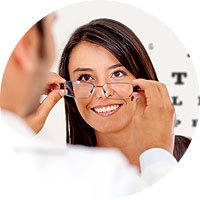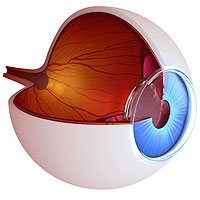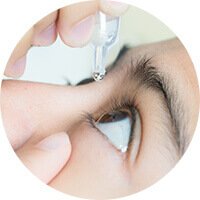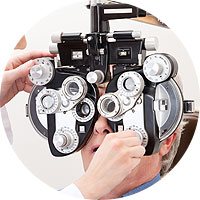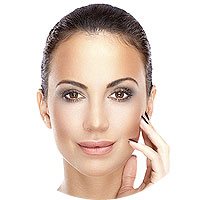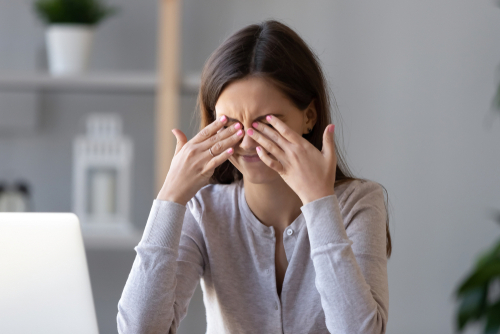
Allergies occur when your immune system reacts to certain foreign substances entering your body. Your body sends massive amounts of antibodies to repel these particles or chemicals.
These particles may not bother some people but, for some reason, trigger a harsh reaction inside of you. These substances can be very common in the environment, including pollen, pet dander, and dust.
Keep reading to learn if allergies may be making your eyes feel dry and irritated!
Can Allergies Cause Dry Eye Symptoms?
A common reaction to allergens is dry, itchy eyes. As the body detects the foreign invaders, the blood vessels swell in response to the histamine released in your body.
You can take some steps to reduce the dry eye symptoms you are experiencing during allergy flares. An excellent first step in treating these bothersome symptoms is using artificial tears.
You can purchase eye drops from most corner stores, pharmacies, and grocery stores. They combine various fluids and chemicals designed to replicate a natural tear.
Artificial tears are safe to use and can provide instant relief from the itching and burning in your eyes associated with eye allergies. You can even find eye drops containing antihistamines to help suppress the allergic reaction.
You can purchase different types of eye drops depending on your needs. It is best to talk to your eye doctor to determine what types of eye drops will best treat your symptoms.
Eye Drop Technique
When applying eye drops, it is essential to use a careful technique to avoid eye infection. First, make sure to wash your hands thoroughly.
Since your hands will be near your eyes as you apply the drops, you will want to make sure they are clean to avoid further irritation to your eyes. Next, open the artificial tear bottle and place the cap of the bottle aside.
It is important not to touch the tip of the drop bottle because touching it can contaminate it. Then, look straight up towards the ceiling.
Using your non-dominant hand, pull down the lower lid of your eye, creating a pocket. With your dominant hand, lift the eye drop applicator above your eye, aiming the tip toward the pocket you have created.
Make sure the bottle is far enough away from your eye to avoid accidentally touching your eye to the bottle. Next, squeeze out one single drop and allow it to settle in for a while before applying more.
Carefully wipe away any excess with a clean cloth or tissue. Finally, close the applicator and make sure not to touch the tip during the process.
Allergy Prevention
You can also focus on preventing symptoms by identifying what allergens trigger the response in you and doing your best to avoid them. For example, if you are sensitive to pollen, keep your windows shut during the summer.
Also, it is best to avoid going outside if you see a high pollen count listed in your area. Frequently wipe down the surfaces in your house with a damp cloth to collect allergens.
You could also invest in an air purifier to help catch airborne allergens all day. If you think you have tried different prevention techniques but are still suffering from dry eye symptoms, there may be a different cause of your dry eye.
See your eye doctor to help identify the root cause of your dry eye and develop a plan to improve your symptoms. Make sure to tell your eye doctor all of the symptoms you are experiencing so they can determine the best treatment plan.
Do you want to learn more about how you can improve your dry eye symptoms this allergy season? Schedule a dry eye appointment at Eye Care Specialists in Kingston, PA, today!











